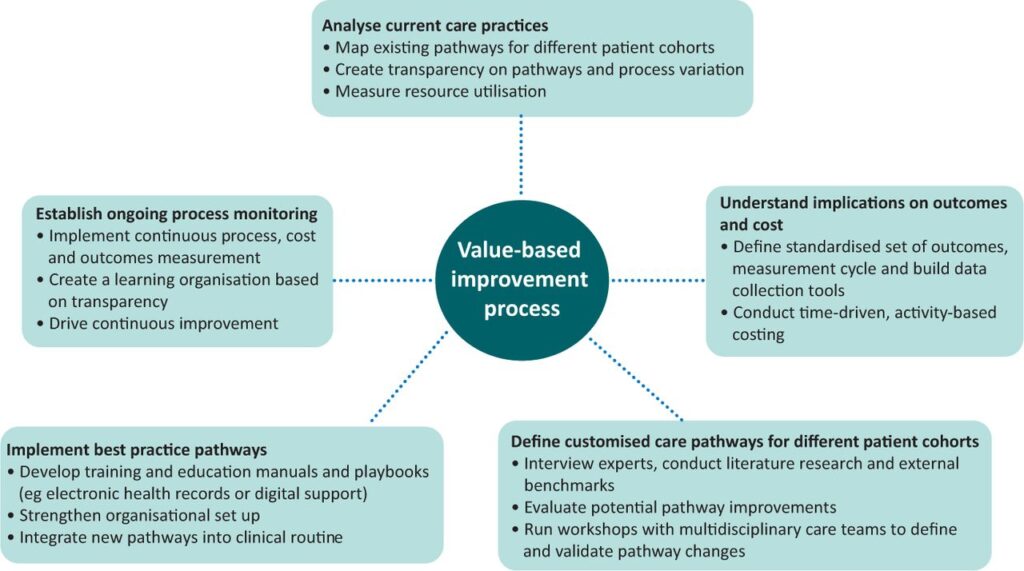Accelerating the pace of value-based transformation for more resilient and sustainable healthcare
An article on the transformation towards value-based healthcare (VBHC). What are the current barriers to adoption of VBHC, and what are some best practices to capitalise on the momentum from the COVID pandemic, to implement value improvement quickly and efficiently?
The COVID-19 pandemic has accelerated the adoption of VBHC, by:
- Lowering the barriers to change
- Challenging long-held assumptions and norms
- Accelerating policies and regulatory changes
- Driving wider acceptance of next-generation care delivery models
Stakeholders made unprecedented strides towards VBHC during the pandemic, almost inadvertently achieving VBHC goals that were unattainable before. Healthcare system stakeholders must build on these innovative and value-based approaches adopted in response to COVID-19, protect the positive change momentum, and develop comprehensive initiatives to reposition their organisations for the future to thrive in a value-based environment.
However, the scale of disruption brought by the pandemic also created specific challenges that providers need to consider while shaping their value-based transformation programme. Providers need to develop a flexible plan with a diverse set of initiatives that lock in the positive changes already made, secure clinicians' engagement, deliver immediate impact and free up resources for subsequent transformations, build VBHC capabilities and fulfil their long-term VBHC leadership aspiration.
Ultimately, we need to capitalise on the momentum of change created by COVID-19 and continue implementing value-based initiatives; remaining agile to navigate uncertainty in the path to the ‘next normal’.
